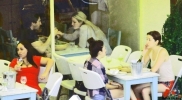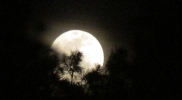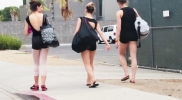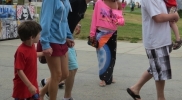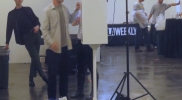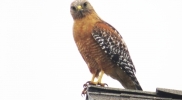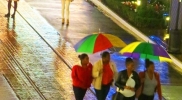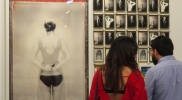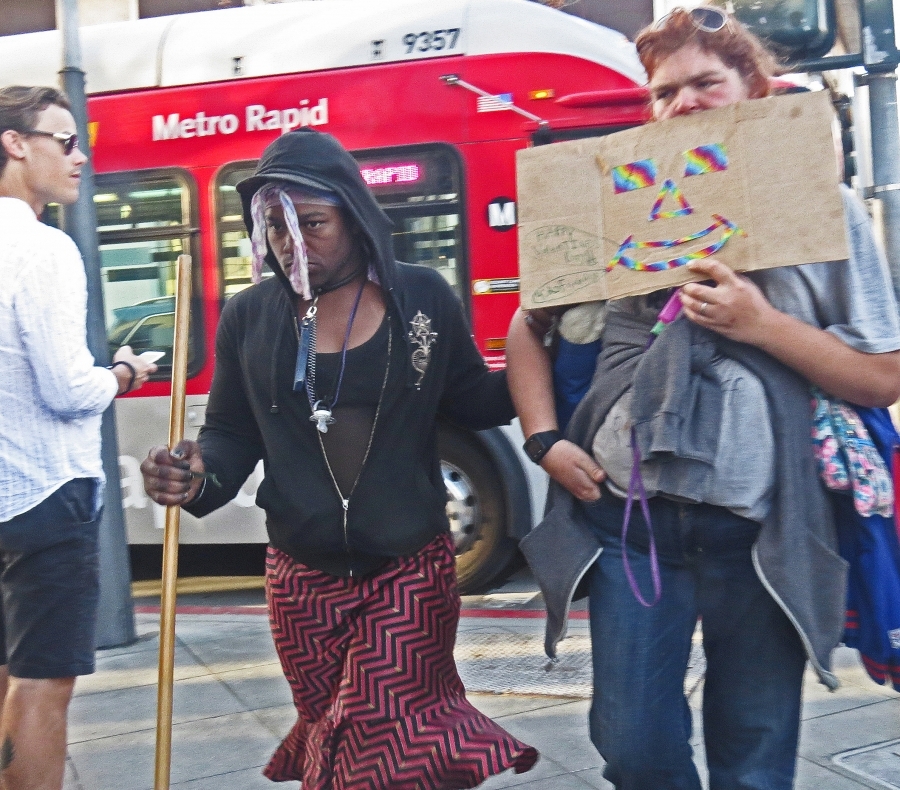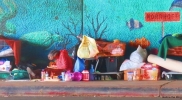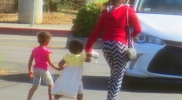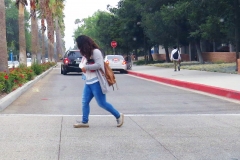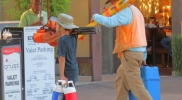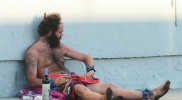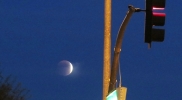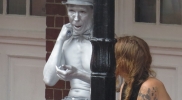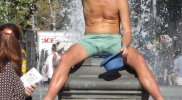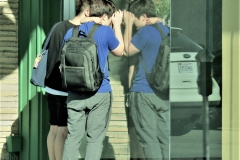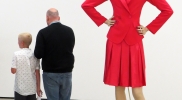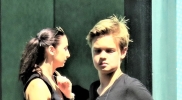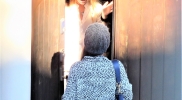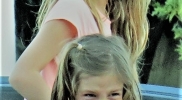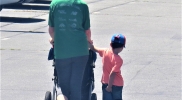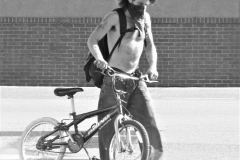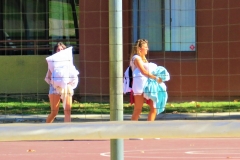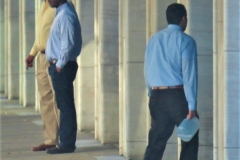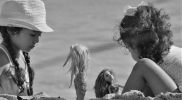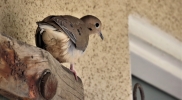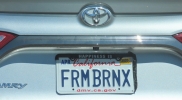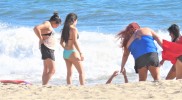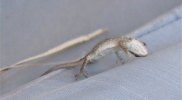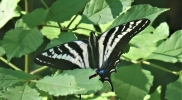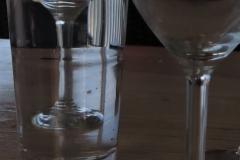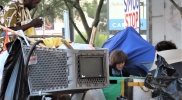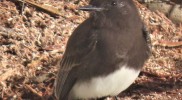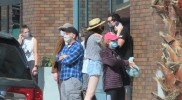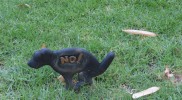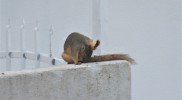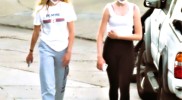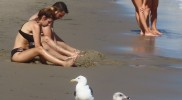|
|
Best Poems - Books
Best Poems – BOOKS & READING & PUBLISHING
|
| |
|
Paper Aeroplane – Simon Armitage
“The man sitting next to me on the flight
was reading a blank book, keen eyes
panning left to right across empty leaves, fingers
turning from one white space to the next.
Sometimes he’d nod agreeably or shake his head,
or painstakingly underline some invisible text
with red ink, or decorate the margin
with an exclamation mark or asterisk.
It was a hefty-looking tome, hand-stitched
but wordless front and back and down the spine.
Coming in to land he laid the silver ribbon-marker
between two bare pages to save his place.
I was wearing noise-cancellation headphones,
listening to fine mist, when he leaned across
and shouted, ‘Forgive the intrusion, but
would you sign this for me? I think it’s your best.'”
|
|
Stanzas Composed In Rev. J. Mitford’s Library – Bernard Barton
“O! I methinks could dwell content
A spell-bound captive here;
And find, in such imprisonment,
Each fleeting moment dear;—
Dear, not to outward sense alone,
But thought’s most elevated tone.
The song of birds, the hum of bees,
Their sweetest music make;
The March winds, through the lofty trees,
Their wilder strains awake;
Or from the broad magnolia leaves
A gentler gale its spirit leaves.
Nor less the eye enraptur’d roves
O’er turf of freshest green,
O’er bursting flowers, and budding groves,
And sky of changeful mien,
Where sunny glimpses, bright and blue,
The fleecy clouds are peeping through.
Thus sooth’d, in every passing mood,
How swift each gifted page,
Rich with the mind’s ambrosial food,
The Muse’s brighter age!
How sweet, communion here to hold
With them, the mighty Bards of old!
With them—whose master spirits yet
In deathless numbers dwell,
Whose works defy us to forget
Their still surviving spell;—
That spell, which lingers in a name,
Whose every echo whispers Fame!
Could aught enhance such hours of bliss,
It were in converse known
With him who boasts a scene like this,
An Eden of his own;
Whose taste and talent gave it birth,
And well can estimate its worth.”
|
The Art of Book-Keeping – Samuel Laman Blanchard
“How hard, when those who do not wish
To lend, that’s lose, their books,
Are snared by anglers—folks that fish
With literary hooks;
Who call and take some favourite tome,
But never read it through;—
They thus complete their set at home,
By making one at you.
Behold the bookshelf of a dunce
Who borrows—never lends:
Yon work, in twenty volumes, once
Belonged to twenty friends.
Now tales and novels you may shut
From view—’tis all in vain;
They’re gone— and though the leaves are ‘cut’
They never ‘come again.’
For pamphlets lent I look around,
For tracts my tears are spilt;
But when they take a book that’s bound,
‘Tis surely extra guilt.
A circulating library
Is mine— my birds are flown;
There’s one odd volume left, to be
Like all the rest, a-lone.
I, of my Spenser quite bereft,
Last winter sore was shaken;
Of ‘Lamb’ I’ve but a quarter left,
Nor could I save my Bacon.
My Hall and Hill were levelled flat,
But Moore was still the cry;
And then, although I threw them Sprat,
They swallowed up my Pye.
O’er everything, however slight,
They seized some airy trammel;
They snatched my Hogg and Fox one night,
And pocketed my Campbell.
And then I saw my Crabbe at last,
Like Hamlet’s, backward go;
And as my tide was ebbing fast,
Of course I lost my Rowe.
I wondered into what balloon
My books their course had bent;
And yet, with all my marvelling, soon
I found my Marvell went.
My Mallet served to knock me down,
Which makes me thus a talker;
And once, while I was out of town,
My Johnson proved a Walker.
While studying o’er the fire one day
My Hobbes amidst the smoke;
They bore my Colman clean away,
And carried off my Coke.
They picked my Locke, to me far more
Than Bramah’s patent’s worth;
And now my losses I deplore,
Without a Home on earth.
If once a book you let them lift,
Another they conceal,
For though I caught them stealing Swift
As swiftly went my Steele.
Hope is not now upon my shelf,
Where late he stood elated;
But, what is strange, my Pope himself
Is excommunicated.
My little Suckling in the grave
Is sunk, to swell the ravage;
And what ’twas Crusoe’s fate to save
‘Twas mine to lose— a Savage.
Even Glover’s works I cannot put
My frozen hands upon;
Though ever since I lost my Foote,
My Bunyan has been gone.
My Hoyle with Cotton went; oppressed,
My Taylor too must fail;
To save my Goldsmith from arrest,
In vain I offered Bayle.
I Prior, sought, but could not see
The Hood so late in front;
And when I turned to hunt for Lee,
Oh! where was my Leigh Hunt!
I tried to laugh, old care to tickle,
Yet could not Tickell touch;
And then, alas! I missed my Mickle,
And surely mickle’s much.
‘Tis quite enough my griefs to feed,
My sorrows to excuse,
To think I cannot read my Reid,
Nor even use my Hughes.
To West, to South, I turn my head,
Exposed alike to odd jeers;
For since my Roger Ascham’s fled,
I ask ’em for my Rogers.
They took my Horne—and Horne Tooke too,
And thus my treasures flit;
I feel when I would Hazlitt view,
The flames that it has lit.
My word’s worth little, Wordsworth gone,
If I survive its doom;
How many a bard I doted on
Was swept off—with my Broome.
My classics would not quiet lie,
A thing so fondly hoped;
Like Dr. Primrose, I may cry,
‘My Livy has eloped!’
My life is wasting fast away—
I suffer from these shocks;
And though I fixed a lock on Grey,
There’s grey upon my locks.
I’m far from young—am growing pale—
I see my Butter fly;
And when they ask about my ail,
‘Tis Burton I reply.
They still have made me slight returns,
And thus my griefs divide;
For oh! they’ve cured me of my Burns,
And eased my Akenside.
But all I think I shall not say,
Nor let my anger burn;
For as they never found me Gay,
They have not left me Sterne.”
|
| |
The Author to Her Book – Anne Bradstreet
“Thou ill-formed offspring of my feeble brain,
Who after birth didst by my side remain,
Till snatched from thence by friends, less wise than true,
Who thee abroad, exposed to public view,
Made thee in rags, halting to th’ press to trudge,
Where errors were not lessened (all may judge).
At thy return my blushing was not small,
My rambling brat (in print) should mother call,
I cast thee by as one unfit for light,
Thy Visage was so irksome in my sight;
Yet being mine own, at length affection would
Thy blemishes amend, if so I could.
I washed thy face, but more defects I saw,
And rubbing off a spot, still made a flaw.
I stretched thy joints to make thee even feet,
Yet still thou run’st more hobbling than is meet;
In better dress to trim thee was my mind,
But nought save home-spun cloth, i’ th’ house I find.
In this array ’mongst vulgars may’st thou roam.
In Critic’s hands, beware thou dost not come;
And take thy way where yet thou art not known,
If for thy Father asked, say, thou hadst none;
And for thy Mother, she alas is poor,
Which caused her thus to send thee out of door.”
|
| |
Books – Billy Collins
“From the heart of this dark, evacuated campus
I can hear the library humming in the night,
a choir of authors murmuring inside their books
along the unlit, alphabetical shelves,
Giovanni Pontano next to Pope, Dumas next to his son,
each one stitched into his own private coat,
together forming a low, gigantic chord of language.
I picture a figure in the act of reading,
shoes on a desk, head tilted into the wind of a book,
a man in two worlds, holding the rope of his tie
as the suicide of lovers saturates a page,
or lighting a cigarette in the middle of a theorem.
He moves from paragraph to paragraph
as if touring a house of endless, paneled rooms.
I hear the voice of my mother reading to me
from a chair facing the bed, books about horses and dogs,
and inside her voice lie other distant sounds,
the horrors of a stable ablaze in the night,
a bark that is moving toward the brink of speech.
I watch myself building bookshelves in college,
walls within walls, as rain soaks New England,
or standing in a bookstore in a trench coat.
I see all of us reading ourselves away from ourselves,
straining in circles of light to find more light
until the line of words becomes a trail of crumbs
that we follow across a page of fresh snow;
when evening is shadowing the forest
and small birds flutter down to consume the crumbs,
we have to listen hard to hear the voices
of the boy and his sister receding into the woods.”
|
| |
Envoy – Billy Collins
“Go, little book,
out of this house and into the world,
carriage made of paper rolling toward town
bearing a single passenger
beyond the reach of this jitter pen
and far from the desk and the nosy gooseneck lamp.
It is time to decamp,
put on a jacket and venture outside,
time to be regarded by other eyes,
bound to be held in foreign hands.
So, off you go, infants of the brain,
with a wave and some bits of fatherly advice:
stay out as late as you like,
don’t bother to call or write,
and talk to as many strangers as you can.”
|
My Books – Barry Cornwall
“All round the room my silent servants wait—
My friends in every season, bright and dim;
Angels and seraphim
Come down and murmur to me, sweet and low,
And spirits of the skies all come and go
Early and late;
All from the old world’s divine and distant date,
From the sublimer few,
Down to the poet who but yester-eve
Sang sweet and made us grieve,
All come, assembling here in order due.
And here I dwell with Poesy, my mate,
With Erato and all her vernal sighs,
Great Clio with her victories elate,
Or pale Urania’s deep and starry eyes.
Oh friends, whom chance and change can never harm,
Whom Death the tyrant cannot doom to die,
Within whose folding soft eternal charm
I love to lie
And meditate upon your verse that flows,
And fertilizes wheresoe’er it goes.”
|
| |
The Collector To His Library – Henry Austin Dobson
“Brown Books of mine, who never yet
Have caused me anguish or regret,—
Save when some fiend in human shape
Has set your tender sides agape,
Or soiled with some unmanly smear
The whiteness of your page sincere,
Or scored you with some phrase inane,
The bantling of his idle brain,—
I love you: and because must end
This commerce between friend and friend,
I do implore each kindly fate—
To each and all I supplicate—
That you whom I have loved so long
May not be vended “for a song,”—
That you, my dear desire and care,
May ‘scape the common thoroughfare,
The dust, the eating rain, and all
The shame and squalor of the stall.
Rather I trust your lot may touch
Some Crœsus—if there should be such—
To buy you, and that you may so
From Crœsus unto Crœsus go
Till that inevitable day
When comes your moment of decay.
This, more than other good, I pray.” |
How To Kill Bookworms – I. F. M. Dovaston “There is a sort of busy worm
That will the fairest books deform,
By gnawing holes throughout them;
Alike through every leaf they go,
Yet of its merits nought they know,
Nor care they aught about them.
Their tasteless tooth will tear and taint
The poet, patriot, sage, or saint,
Nor sparing wit nor learning:
Now, if you’d know the reason why,
The best of reasons I’ll supply—
‘Tis bread to the poor vermin.
Of pepper, snuff, or ‘bacca-smoke,
And russia-calf they make a joke.
Yet why should sons of science
These puny, rankling reptiles dread?
‘Tis but to let their books be read,
And bid the worms defiance.” |
Golden Volumes! Richest Treasures! – I. D’Israeli “Golden volumes! richest treasures!
Objects of delicious pleasures!
You my eyes rejoicing please,
You my hands in rapture seize!
Brilliant wits and moving sages,
Lights who beamed through many ages,
Left to your conscious leaves their story,
And dared to trust you with their glory;
And now their hope of fame achieved
Dear volumes!—you have not deceived!” |
The Printer’s Error – Aaron Fogel
Fellow compositors
and pressworkers!
“I, Chief Printer
Frank Steinman,
having worked fifty-seven
years at my trade,
and served five years
as president
of the Holliston
Printer’s Council,
being of sound mind
though near death,
leave this testimonial
concerning the nature
of printers’ errors.
First: I hold that
all books and all
printed matter have
errors, obvious or no,
and these are
their most significant moments,
not to be tampered with
by the vanity and folly
of ignorant, academic
textual editors.
Second: I hold that there are
three types of errors, in ascending
order of importance:
One: chance errors
of the printer’s trembling hand
not to be corrected incautiously
by foolish professors
and other such rabble
because trembling is part
of divine creation itself.
Two: silent, cool sabotage
by the printer,
the manual laborer
whose protests
have at times taken this
historical form,
covert interferences
not to be corrected
censoriously by the hand
of the second and far
more ignorant saboteur,
the textual editor.
Three: errors
from the touch of God,
divine and often
obscure corrections
of whole books by
nearly unnoticed changes
of single letters
sometimes meaningful but
about which the less said
by preemptive commentary
the better.
Third: I hold that all three
sorts of error,
errors by chance,
errors by workers’ protest,
and errors by
God’s work,
are in practice the
same and indistinguishable.
Therefore I,
Frank Steinman,
typographer
for thirty-seven years,
and cooperative Master
of the Holliston Guild
eight years,
being of sound mind and body
though near death
urge the abolition
of all editorial work
whatsoever
and manumission
from all textual editing
to leave what was
as it was, and
as it became,
except insofar as editing
is itself an error, and
therefore also divine.” |
| For My Niece Sidney, Age Six – Amy Gerstler
“Did you know that boiling to death
was once a common punishment
in England and parts of Europe?
It’s true. In 1542 Margaret Davy,
a servant, was boiled for poisoning
her employer. So says the encyclopedia.
That’s the way I like to start my day:
drinking hot black coffee and reading
the 1910 Encyclopedia Britannica.
Its pages are tissue thin and the covers
rub off on your hands in dirt colored
crumbs (the kind a rubber eraser
makes) but the prose voice is all knowing
and incurably sure of itself. My 1956
World Book runs to 18 volumes and has red
pebbly covers. It begins at ‘Aardvark’
and ends with ‘Zygote.’ I used to believe
you could learn everything you’d ever
need by reading encyclopedias. Who
was E.B. Browning? How many Buddhists
in Burma? What is Byzantine art? Where
do bluebells grow? These days, I own five
sets of encyclopedias from various
eras. None of them ever breathed
a word about the fact that this humming,
aromatic, acid flashback, pungent, tingly-
fingered world is acted out differently
for each one of us by the puppet theatre
of our senses. Some of us grow up doing
credible impressions of model citizens
(though sooner or later hairline
cracks appear in our facades). The rest
get dubbed eccentrics, unnerved and undone
by other people’s company, for which we
nevertheless pine. Curses, outbursts
and distracting chants simmer all day
long in the Crock-Pots of our heads.
Encyclopedias contain no helpful entries
on conducting life’s business while the ruckus
in your skull keeps competing for your
attention; or on the tyranny of the word
normal—its merciless sway over those
of us bedeviled and obsessed,
hopeless at school dances, repelled by
mothers’ suffocating hugs, yet entranced
by foul-smelling chemistry experiments,
or eager to pass sleepless nights seeking
rhymes for misspent and grimace.
Dear girl, your jolly blond one-year-old
brother, who adults adore, fits into
the happy category of souls mostly at home
in the world. He tosses a fully clothed doll
into the inflatable wading pool in your
backyard (splash!) and laughs maniacally
at his own comic genius. You sit alone,
twenty feet from everyone else, on a stone
bench under a commodious oak, reading aloud,
gripping your book like the steering wheel
of a race car you’re learning to drive.
Complaints about you are already filtering
in. You’re not big on eye contact or smiling.
You prefer to play by yourself. You pitch fits.
Last week you refused to cut out and paste
paper shapes with the rest of the kids.
You told the kindergarten teacher you were
going to howl like a wolf instead, which you did
till they hauled you off to the principal’s
office. Ah, the undomesticated smell
of open rebellion! Your troublesome legacy,
and maybe part of your charm, is to shine
too hotly and brightly at times, to be lost
in the maze of your sensations, to have
trouble switching gears, to be socially
clueless, to love books as living things,
and therefore to be much alone. If you like,
when I die, I’ll leave you my encyclopedias.
They’re wonderful company. Watching you
read aloud in your father’s garden, as if
declaiming a sermon for hedges, I recall
reading about Martin Luther this morning.
A religious reformer born in 1483, he nailed
his grievances, all 95 of them, to a German
church door. Fiery, impossible, untamable
girl, I bet you too post your grievances
in a prominent place someday. Anyway,
back to boiling. The encyclopedia says
the worst offenders were ‘boiled without
benefit of clergy’ which I guess means
they were denied the right to speak
to a priest before being lowered into scalding
water and cooked like beets. Martin Luther
believed we human beings contain the ‘inpoured
grace of god,’ as though grace were lemonade,
and we are tumblers brim full of it. Is grace
what we hold in without spilling a drop,
or is it an outflooding, a gush of messy
befuddling loves? The encyclopedia never
explains why Margaret Davy poisoned her employer,
what harm he might have done her or whether
she dripped the fatal liquid on his pudding or sloshed
it into his sherry. Grievances and disagreements:
can they lead the way to grace? If our thoughts
and feelings were soup or stew, would they taste
of bile when we’re defeated and be flavored
faintly with grace on better days? I await the time
and place when you can tell me, little butter pear,
screeching monkey mind, wolf cub, curious furrow
browed mammal what you think of all this.
Till then, your bookish old aunt sends you this missive,
a fumbling word of encouragement, a cockeyed letter
of welcome to the hallowed ranks of the nerds,
nailed up nowhere, and never sent, this written kiss.”
|
| |
At A Bookstall – Charles Lamb “I saw a boy with eager eye
Open a book upon a stall,
And read as he’d devour it all;
Which when the stall-man did espy,
Soon to the boy I heard him call,
‘You, sir, you never buy a book,
Therefore in one you shall not look.’
The boy pass’d slowly on, and with a sigh
He wish’d he never had been taught to read,
Then of the old churl’s books he should have had no need.” |
| |
|
A Book – Adelaide Love
“A book, I think, is very like
A little golden door
That takes me into places
Where I’ve never been before.
It leads me into fairyland
Or countries strange and far
And, best of all, the golden door
Always stands ajar.”
|
| |
|
Dirge For An Era – Phyllis McGinley
“O! do you remember Paper Books
When paper books were thinner?
It was all so gay
In that far-off day
When you fetched them home
At a quarter a tome
To dip in after dinner
Or carry to bed in a handy packet,
Bosomy girls on every jacket.
And never a taint of culture
Sullied that wholesome air
But only bodies
In Bishop’s studies
And blood on the bill-of-fare.
As the type grew blurry the plots grew thick.
But what do we get now?
Moby Dick.
Cluttering bookstore counters,
In stationer’s windows preening,
The Paperbacks
Now offer us facts
On Tillich and Sartre
And abstract artre
And Life’s Essential Meaning,
Confessions by St. Augustine
Instead of murderous men
Or man a yard
Of Kierkegaard
And the myriad laws of Zen
Or books about bees and how they hive,
Cheap at a dollar-
Ninety-five.
You pack your trunk and you’re at the station
But what do you find for a journey’s ration?
Books by Aeschylus, books by Chaucer,
Books about atom or flying saucer,
Books of poetry, deep books, choice books,
Pre-Renaissance and neo-Joyce books,
In covers chaste and a prose unlurid.
Books that explore my id and your id,
Never hammock or summer-porch books
But Compass, Evergreen, Anchor, Torch Books,
Books by a thousand stylish names
And everywhere, everywhere, Henry James.
O! do you remember Paper Books
When paper books were thrilling,
When something to read
Was seldom Gide
Or Proust or Peacock
Or Margaret Mead
And seldom Lionel Trilling?
Gone is the sleuth that cheered our youth
And the prose that galloped pure.
The flame of our pleasure burns to ash
Since shops are swept of their darling trash
And all we can buy for petty cash
Is paper Literature.”
|
|
Lady of the Books – Augie Medina
“Oh the things she read!
They only found out after she was dead
She had smorgasbord tastes
No book went to waste
Romances, histories, even light porn
Poetry and a ‘how to’ on the growing of corn
Math texts, travel guides and biographies
Books on cooking, wines and good cheese
Even Bach on counterpoint, would you believe?
Universal knowledge she wished to achieve
Books on the shelves and scattered on the floor
This was the scene when they walked through the door
A natural death but she had dressed to the nines
In full length dress and jewelry that shined
In the curious way that things sometimes turn out
No one ever learned what she was about
But if you want and know where to look
You’ll find her just known as Lady of the Books.”
|
| |
|
Who Hath A Book – Wilbur D. Nesbit
“Who hath a book
Hath friends at hand,
And gold and gear
At his command;
And rich estates,
If he but look,
Are held by him
Who hath a book.
Who hath a book
Hath but to read
And he may be
A king indeed;
His Kingdom is
His inglenook;
All this is his
Who hath a book.” |
|
To My Books – Caroline Norton
“Silent companions of the lonely hour,
Friends who can never alter or forsake,
Who for inconstant roving have no power,
And all neglect, perforce, must calmly take—
Let me return to you, this turmoil ending,
Which worldly cares have in my spirit wrought,
And, o’er your old familiar pages bending,
Refresh my mind with many a tranquil thought;
Till happily meeting there, from time to time,
Fancies, the audible echo of my own,
‘Twill be like hearing in a foreign clime
My native language spoken in friendly tone,
And with a sort of welcome I shall dwell
On these, my unripe musings, told so well.”
|
| |
|
The Bookworm – Thomas Parnell
“Come hither, Boy! we’ll hunt to-day
The Bookworm, ravening beast of prey,
Produc’d by parent Earth, at odds
(As Fame reports it) with the gods.
Him frantic hunger wildly drives
Against a thousand authors’ lives:
Thro’ all the fields of wit he flies;
Dreadful his head with clust’ring eyes,
With horns without, and tusks within,
And scales to serve him for a skin.
Observe him nearly, lest he climb
To wound the bards of antient time,
Or down the vale of Fancy go
To tear some modern wretch below:
On ev’ry corner fix thine eye,
Or ten to one he slips thee by.
See where his teeth a passage eat:
We’ll rouse him from the deep retreat.
But who the shelter’s forc’d to give?
‘Tis sacred Virgil as I live!
From leaf to leaf, from song to song,
He draws the tadpole form along,
He mounts the gilded edge before,
He’s up, he scuds the cover o’er;
He turns, he doubles, there he past,
And here we have him, caught at last.
Insatiate Brute! whose teeth abuse
The sweetest servants of the Muse.
(Nay never offer to deny,
I took thee in the fact to fly.)
His roses nipt in ev’ry page,
My poor Anacreon mourns thy rage;
By thee my Ovid wounded lies;
By thee my Lesbia’s Sparrow dies;
Thy rabid teeth have half destroy’d
The work of Love in Biddy Floyd;
They rent Belinda’s locks away,
And spoil’d the Blouzelind of Gay.
For all, for ev’ry single deed,
Relentless Justice bids thee bleed.
Then fall a victim to the Nine,
My self the priest, my desk the shrine.
Bring Homer, Virgil, Tasso, near,
To pile a sacred altar here.
Hold, Boy! thy hand out-runs thy wit,
You reach’d the plays that Dennis writ;
You reach’d me Phillips’ rustic strain;
Pray take your mortal bards again.
Come bind the victim,—There he lies,
And here between his num’rous eyes
This venerable dust I lay,
From manuscripts just swept away.
The goblet in my hand I take,
(For the libation’s yet to make)
A health to Poets! all their days
May they have bread, as well as praise;
Sense may they seek, and less engage
In papers fill’d with party-rage;
But if their riches spoil their vein,
Ye Muses! make them poor again.
Now bring the weapon, yonder blade,
With which my tuneful pens are made.
I strike the scales that arm thee round,
And twice and thrice I print the wound;
The sacred altar floats with red,
And now he dies, and now he’s dead.
How like the son of Jove I stand,
This hydra stretch’d beneath my hand!
Lay bare the monster’s entrails here,
To see what dangers threat the year:
Ye Gods! what Sonnets on a wench!
What lean Translations out of French!
‘Tis plain, this lobe is so unsound,
S——prints, before the months go round.
But hold, before I close the scene,
The sacred altar should be clean.
Oh! had I Shadwell’s second bays,
Or Tate! thy pert and humble lays,
(Ye Pair! forgive me, when I vow
I never miss’d your Works till now)
I’d tear the leaves to wipe the shrine,
(That only way you please the Nine)
But since I chance to want these two,
I’ll make the Songs of D’Urfey do.
Rent from the corpse, on yonder pin
I hang the scales that brac’d it in;
I hang my studious morning gown,
And write my own inscription down.
This trophy, from the Python won,
This robe, in which the deed was done,
These Parnell, glorying in the feat,
Hung on these shelves, the Muses’ seat.
Here Ignorance and Hunger found
Large realms of wit to ravage round;
Here Ignorance and Hunger fell;
Two foes in one I sent to hell.
Ye Poets! who my labours see,
Come share the triumph all with me:
Ye Critics! born to vex the Muse,
Go mourn the grand ally you lose.” |
To The Readers – Rabelais “My friends, who are about to read this book,
Please rid yourselves of every predilection;
You’ll find no scandal, if you do not look,
For it contains no evil or infection,
True, you’ll discover, upon close inspection,
It teaches little, except how to laugh:
The best of arguments; the rest is chaff,
Viewing the grief that threatens your brief span;
For smiles, not tears, make the better autograph,
Because to laugh is natural to man.” |
The Pleasures of Books – Henry de Rantzu “Golden Volumes! richest treasures!
Objects of delicious pleasures!
You my eyes rejoicing please,
You my hands in rapture seize.
Brilliant wits and musing sages,
Lights who beam’d through many ages,
Left to conscious leaves their story,
And dared to trust you with their glory;
And now their hope of fame achieved,
Dear volumes! you have not deceived!” |
| |
The Book Hunter – Frank Demspter Sherman
“A CUP of coffee, eggs, and rolls
Sustain him on his morning strolls:
Unconscious of the passers-by,
He trudges on with downcast eye;
He wears a queer old hat and coat,
Suggestive of a style remote;
His manner is preoccupied,—
A shambling gait, from side to side.
For him the sleek, bright-windowed shop
Is all in vain,—he does not stop.
His thoughts are fixed on dusty shelves
Where musty volumes hide themselves,—
Rare prints of poetry and prose,
And quaintly lettered folios,—
Perchance a parchment manuscript,
In some forgotten corner slipped,
Or monk-illumined missal bound
In vellum with brass clasps around;
These are the pictured things that throng
His mind the while he walks along.
A dingy street, a cellar dim,
With book-lined walls, suffices him.
The dust is white upon his sleeves;
He turns the yellow, dog-eared leaves
With just the same religious look
That priests give to the Holy Book.
He does not heed the stifling air
If so he find a treasure there.
He knows rare books, like precious wines,
Are hidden where the sun ne’er shines;
For him delicious flavors dwell
In books as in old Muscatel;
He finds in features of the type
A clew to prove the grape was ripe.
And when he leaves this dismal place,
Behold, a smile lights up his face!
Upon his cheeks a genial glow,—
Within his hand Boccaccio,
A first edition worn with age,
‘Firenze’ on the title-page.” |
| |
The Scholar In His Library – Robert Southey “My days among the Dead are pass’d
Around me I behold,
Where’er these casual eyes are cast,
The mighty minds of old;
My never-failing friends are they,
With whom I converse night and day.
With them I take delight in weal,
And seek relief in woe;
And while I understand and feel
How much to them I owe,
My cheeks have often been bedew’d
With tears of thoughtful gratitude.
My thoughts are with the Dead; with them
I live in long-past years,
Their virtues love, their faults condemn,
Partake their griefs and fears;
And from their sober lessons find
Instruction with a humble mind.
My hopes are with the Dead: anon
With them my place will be;
And I with them shall travel on
Through all futurity;
Yet leaving here a name, I trust,
Which will not perish in the dust.” |
The Booksigning – James Tate “An ad in the newspaper said that a local author
would be signing his new book at the bookstore today.
I didn’t even know we had any local authors. I was
going to be downtown anyway, so I decided to drop in
and see what he looked like. He was short and fat
and ugly, but all kinds of beautiful women were flirting
with him and laughing at every little joke he made.
Even though I didn’t know anything about his book, I
wished I had written it. A man came up to me and said,
‘I hated it when the little girl died. I just couldn’t
stop crying.’ ‘Thank God for the duck,’ I said. He
took a step back from me. ‘I don’t remember the duck,’
he said. ‘Well, then, I’m afraid you missed the whole
point of the book. The duck is absolutely central,
it’s the veritable linchpin of the whole denouement,’
I said. (I had learned that word in high school, and
now it served me well.) ‘But what about the little
girl?’ the man asked, with a painful look of bewilder-
ment on his face. ‘She should have been shot a hundred
pages earlier,’ I said. ‘I don’t think I like you,’
the man said, and walked away clutching his book.
I looked over at the author. He was signing a young
woman’s cleavage, and the other women were laughing
and pulling open their blouses to be signed. I had
never even thought of writing a novel. Now, my mind
was thrashing about. The man I had offended earlier
walked up to me and offered me a glass of wine. ‘If
I may ask you, sir, why were you so rude to me?’ he
said. I looked up from the abyss and said, ‘Because
I am nothing. Because I am a speck of dust floating
in infinite darkness. Because you have feelings and
you care. Do you understand me now?’ ‘Perfectly,’
he said. ‘Cheers!’” |
My Books – W. (The Athenaeum, August 23, 1849) “My benison upon you, Books,—
Upon your ever-constant looks!
Still the same seems every tome
To welcome me as I come home.
Now from our daily task releast,
I can hold my nightly feats;
With philosophers discourse,
Wonder at polemics hoarse,—
Feed on rhyme or flirt with rumour,
As may best befit my humour.
Blessed comforters are ye,—
Well-springs of serenity,—
Curing all sad perturbations
With your silent inspirations!
Bitter thought ye soothe, I wist,
Leading Fancy as ye list.
When the soul is running riot,
Ye restore here with your quiet;
Or from brooding sorrow wean,
Scene revealing after scene—
Pointing upwards to the Holy,
Guiding downwards to the Lowly,
Drawing onwards to the Right,
Love inspiring—or delight—
As I turn your varied pages,
Stamped with brain-work of the ages.
Oh how sweet when I come home
To see around me many a tome:
Here to revel—there to muse,
Glean or wander as I chuse!
One or two—so seems to me—
Throb with echoes from the sea,
And in some my sense perceives
The melody of forest leaves;
Here is one—a bosom book—
That babbles like a mountain brook;
Another yet is gorgeous, still,
At sunset on a distant hill.
Endless landscapes cross my room,
Fancy-decked in twilight gloom;
Autumn, Winter, Summer, Spring,
Wizard books, ye changeful bring!
Something apt for each emotion,
Love, or gladness, or devotion.
Ye to me—instead of wife,
Instead of child—are second life…
Admonishers of strife and folly,
Soothers of black melancholy,
Gentle, most persuasive Teachers,
Or authoritative preachers;
Companions full of life and spirit,
Mentors who some grudge inherit.
Sometimes full of queerest fancies,
Vague as jack-o-lantern dances:—
Others while ye are as prim
As Quakers neat, sedate, and trim.
Three or four are jolly fellows,
Whom time fortifies and mellows;
Some make pretensions to be witty,
Others chant a stirring ditty;—
Suiting every time and season
With a rhyme or with a reason.
Books beloved, ye are to me
An unretorting family:
Ye for each day’s irritation
Always bring a compensation.
How shall sadness come or gloom
While ye lie about my room,
Looking down from friendly nooks?
My benison upon you, Books!” |
| |
The World Of Books – William Wordsworth “Wings have we—and as far as we can go
We may find pleasure: wilderness and wood,
Blank ocean and mere sky, support that mood
Which with the lofty sanctifies the low.
Dreams, books, are each a world; and books, we know,
Are a substantial world, both pure and good:
Round these, with tendrils strong as flesh and blood,
Our pastime and our happiness will grow.
There find I personal themes, a plenteous store,
Matter wherein right voluble I am;
To which I listen with a ready ear;
Two shall be named, pre-eminently dear,—
The gentle Lady married to the Moor;
And heavenly Una with her milk-white Lamb.” |
| |
| The Tables Turned – William Wordsworth
“Up! up! my Friend, and quit your books;
Or surely you’ll grow double:
Up! up! my Friend, and clear your looks;
Why all this toil and trouble?
The sun above the mountain’s head,
A freshening lustre mellow
Through all the long green fields has spread,
His first sweet evening yellow.
Books! ’tis a dull and endless strife:
Come, hear the woodland linnet,
How sweet his music! on my life,
There’s more of wisdom in it.
And hark! how blithe the throstle sings!
He, too, is no mean preacher:
Come forth into the light of things,
Let Nature be your Teacher.
She has a world of ready wealth,
Our minds and hearts to bless—
Spontaneous wisdom breathed by health,
Truth breathed by cheerfulness.
One impulse from a vernal wood
May teach you more of man,
Of moral evil and of good,
Than all the sages can.
Sweet is the lore which Nature brings;
Our meddling intellect
Mis-shapes the beauteous forms of things:—
We murder to dissect.
Enough of Science and of Art;
Close up those barren leaves;
Come forth, and bring with you a heart
That watches and receives.”
|

Comments are closed.
|
|
